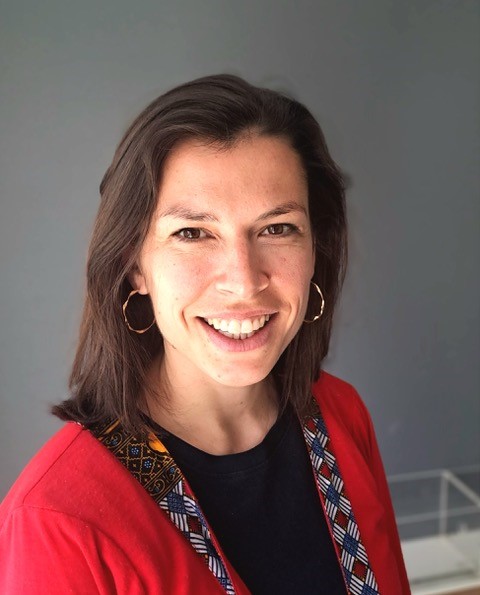Minodu


Climate change and population growth in sub-Saharan Africa make it difficult to manage land sustainably while conserving natural resources. There is often a gap between existing, scientific concepts on sustainable land management and concrete solutions on the ground.

DFKI - German Research Center for Artificial Intelligence
The Minodu project aims to close this gap by processing existing knowledge in a user-friendly way, creating local networks and developing concrete solution approaches together with the communities. It also considers how results can be shared with groups that have limited access to digital technologies. The goal is to provide and improve knowledge on topics such as climate change, sustainability, water management, and desertification, as well as relevant technologies, through various participation formats.
Together with communities in Togo, the project team is working out how to make concrete improvements on the ground toward more sustainable land use, what resources are available, and how stakeholders can benefit from a shared network with other actors. Digital technologies and social action are combined to create new opportunities and build connections between different groups. Through this hands-on approach, knowledge is sustainably anchored in all participants and an emotional connection to the topic is created.
Practical Research from +40 students at Kara University (including research reports, audios for communities in both French and Kabiyè languages): Recherche Pratique Université Kara: https://minodu.notion.site/Recherche-pratique-Universit-Kara-2763612f4b0380f39c00df53ef803304
Alali, Essomanam. Climate-adaption focussed glossary French-Kabiyè. Bilingual translation of key climate and agricultural terms to strengthen accessible knowledge transfer. Lexique Kabiyè
Lange, C., Fröbel, F. Book Chapter “Rethinking Innovation: A Locally Anchored Approach to Participatory Design and Knowledge”, Handbook on Innovation in Africa, Howard University in publication.
Fröbel, F., Lange, C., Gschwendtner, P., Foli-Bebe, O., Afanou, S., Tsamedi, V., & Joost, G. (2025, November). If I were a digital application, I would be ChatGPT: Student perspectives on digital technology in Togo. In Proceedings of the 5th Biennial African Human Computer Interaction Conference (pp. 267-283). https://doi.org/10.1145/3757232.3757251*n.*
Koudima Bokoumbo, Mikémina Pilo, Magnan Petit Katanlé Kasseba, (2025). Contract farming and sustainability: the case of organic soybean producers in Togo*, SN Business & Economics*, 5(7), 1-28. https://link.springer.com/article/10.1007/s43546-025-00855-2
Mikémina Pilo, (2025) Electric power: a pillar for agricultural transformation in Togo, *Cogent Food & Agriculture, 1(11), 1-17. https://www.tandfonline.com/doi/epdf/10.1080/23311932.2025.2598722?needAccess=true.*
Fröbel, F., Lange, C., & Joost, G. (2023). Minodu: Fostering Local Sustainable Development through Technology and Research. In Proceedings of the Weizenbaum Conference 2022. https://doi.org/10.34669/wi.cp/4.17
Open Lab Abend: Klimawandel auf die Ohren. Hands-on Workshop. Futurium Berlin. 12.06.2025 https://futurium.de/open-lab-abend/open-lab-abend-klimawandel-auf-die-ohren
Pilo Mikémina and Kolani Lardja (2025). Impact of land tenure security on the adoption of sustainable land management practices: evidence from farm households in Togo, Status seminar, 2025, June, 2-6 2025, Ghana.
R&D Management Conference Stockholm 06/24: „Design-Driven Approaches for Climate Resilience“
Mikémina Pilo, Anara Kpassiro Agolo, Koudima Bokoumbo (2024). Sustainability of sesame farm households supported by Orge NGO in the Savanes region of Togo ; Tropentag 2024, September 11 – 13, Vienna, Austria. https://www.tropentag.de/2024/abstracts/links/Pilo_khwiD207.php
Mikémina Pilo, Mèba Grasse Akpe, Essowè Tantiana Abalo (2024). Consumer valuation of organic horticultural products in Lama community of Togo, Tropentag 2024, September 11 – 13, Vienna, Austria. https://www.tropentag.de/2024/abstracts/links/Akpe_NTq2yXoH.php
Fufu-Workshop, 30.05.2024 at Berlin Open Lab. https://www.drlab.org/2024/05/14/fufu-workshop-bol-i/
Hands-On Workshop, Building Bridges: Soldering for Climate Change Awareness at Re:publica 2024. 29.05.2024. https://re-publica.com/en/node/4164
Mindou – Fostering local sustainable development through technology and research in West-Africa. BOL X Hybrid Plattform | Symposium II, Berlin. Vortrag, Berlin, 26.01.2023. https://berlin-open-lab.org/wp-content/uploads/2023/01/Programm-BOL-Symposium-II.pdf
Mindou – Fostering local sustainable development through technology and research in West-Africa. Weizenbaum Conference: Practicing Sovereignty. Interventions for open digital futures, Vortrag, Berlin, 10.06.2022. https://www.weizenbaum-institut.de/events/weizenbaum-conference-2022-practicing-sovereignty-interventions-for-open-digital-futures/